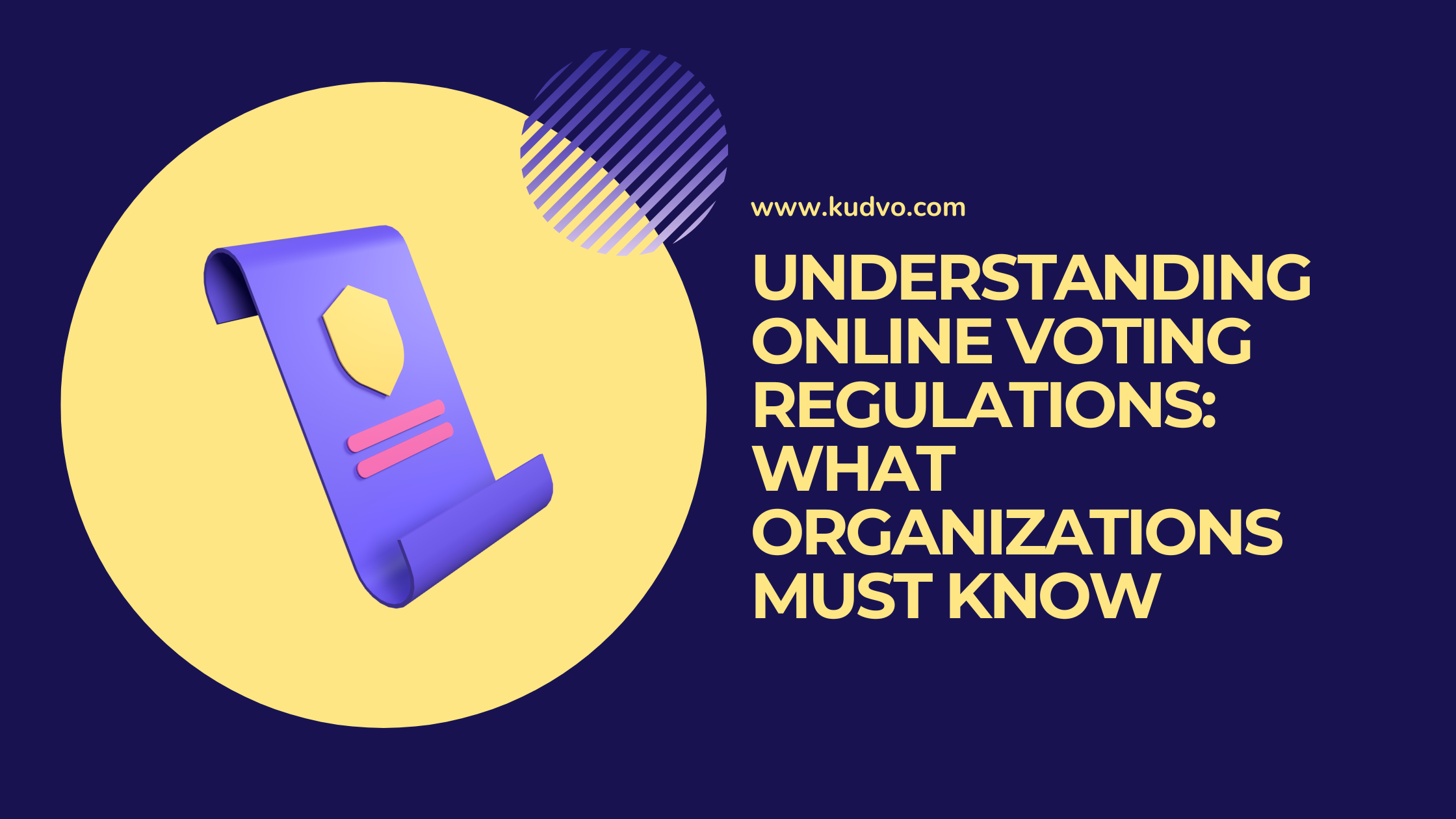Understanding Online Voting Regulations: What Organizations Must Know
Introduction
Can your organization legally hold an election online?
As digital transformation sweeps across every sector, more organizations are turning to online voting for faster, more convenient decision-making. But while the technology is ready, the legal landscape around online voting can be complex—and failing to comply can lead to invalid elections, disputes, or legal action.
In this post, we’ll break down the essential regulations and compliance considerations organizations need to know before launching an online vote. Whether you’re a nonprofit, HOA, union, or corporation, understanding these rules is key to running a secure, legitimate, and defensible election.
(Brought to you by Kudvo, your trusted partner in compliant online voting.)
1. Know Your Jurisdiction’s Laws
Online voting laws vary significantly depending on where your organization is incorporated or operates. Federal, state/provincial, and even local laws can impact whether and how you can conduct a vote online.
Key areas to research:
Nonprofit or corporate bylaws: Some require paper ballots unless amended.
State statutes: Certain states (like Delaware or California) explicitly allow online voting for nonprofits or corporations.
Local ordinances: Municipal bodies or HOAs may have unique rules or charters.
Tip: Always consult your legal advisor or check with your state’s Secretary of State website for up-to-date voting guidelines.
2. Check Your Bylaws and Constitutions
Even if your state allows online voting, your organization’s own governing documents may restrict or define how voting must occur.
Review:
Voting method clauses
Quorum definitions
Proxy voting rules
Requirements for secure record-keeping
Example:
If your bylaws specify "mail-in ballots" or “in-person votes,” you may need to amend them before adopting online voting.
3. Ensure Voter Authentication and Data Privacy
Online voting platforms must comply with data protection laws such as:
GDPR (EU-based members or voters)
PIPEDA (Canada)
CCPA (California residents)
Best practices for compliance:
Use secure voter authentication (e.g., email verification, unique codes)
Store data on secure, encrypted servers
Clearly disclose how voter data is used and stored
Allow users to request or delete their data if legally required
Platforms like Kudvo are built with data privacy in mind, offering full transparency and control over voter information.
4. Maintain a Verifiable Audit Trail
For your election results to stand up to scrutiny, you need to maintain a clear and verifiable audit trail.
This includes:
Timestamped vote records (without revealing identities in anonymous votes)
Immutable logs of who voted (not what they voted for)
Secure archival of voting data and results
Access controls to prevent tampering
Why it matters: If an election is contested, having verifiable logs helps prove its legitimacy.
5. Accessibility and Inclusion Requirements
Accessibility isn’t just a best practice—it’s often a legal requirement.
Under laws like the Americans with Disabilities Act (ADA) in the U.S., your voting platform must be usable by all, including:
Screen reader compatibility
Keyboard navigation
Color contrast for visibility
Failing to meet accessibility standards could invalidate your vote or expose your organization to legal action.
Conclusion
Online voting can be a game-changer—but only when done legally and responsibly. Understanding the regulations that apply to your organization is critical to running a vote that is valid, inclusive, and secure.
Here’s a quick checklist to get you started:
✅ Check federal/state/provincial/local laws
✅ Review and update your bylaws
✅ Use a platform that supports secure voter authentication
✅ Comply with data privacy regulations
✅ Ensure a tamper-proof audit trail
✅ Provide accessibility for all voters
Need help ensuring your vote meets all regulatory standards? Visit www.kudvo.com to learn how we help organizations run compliant and stress-free online elections.
